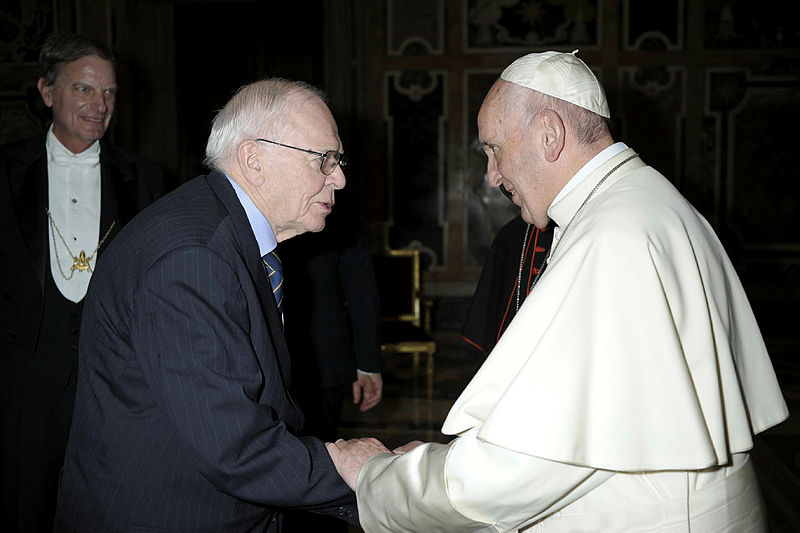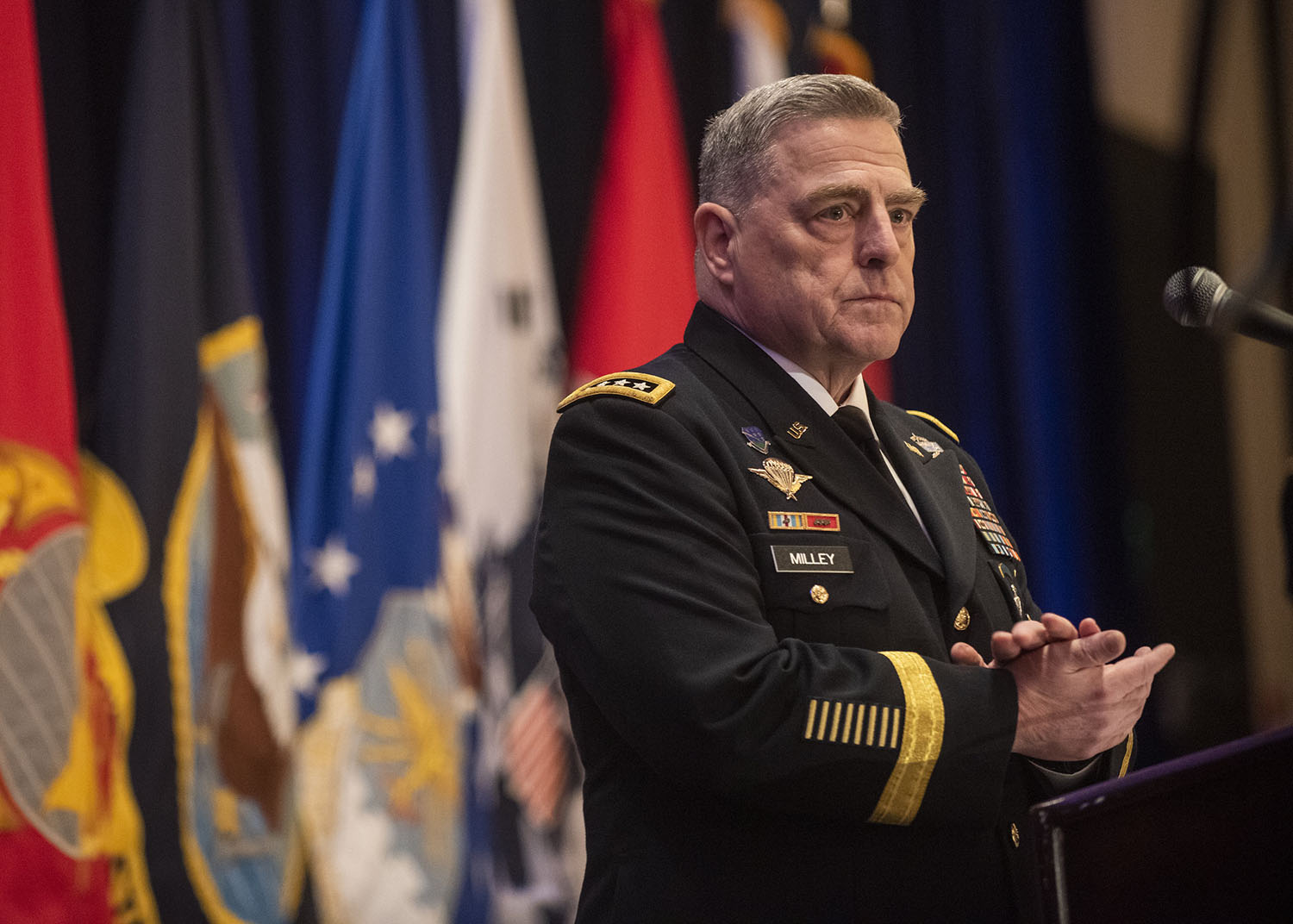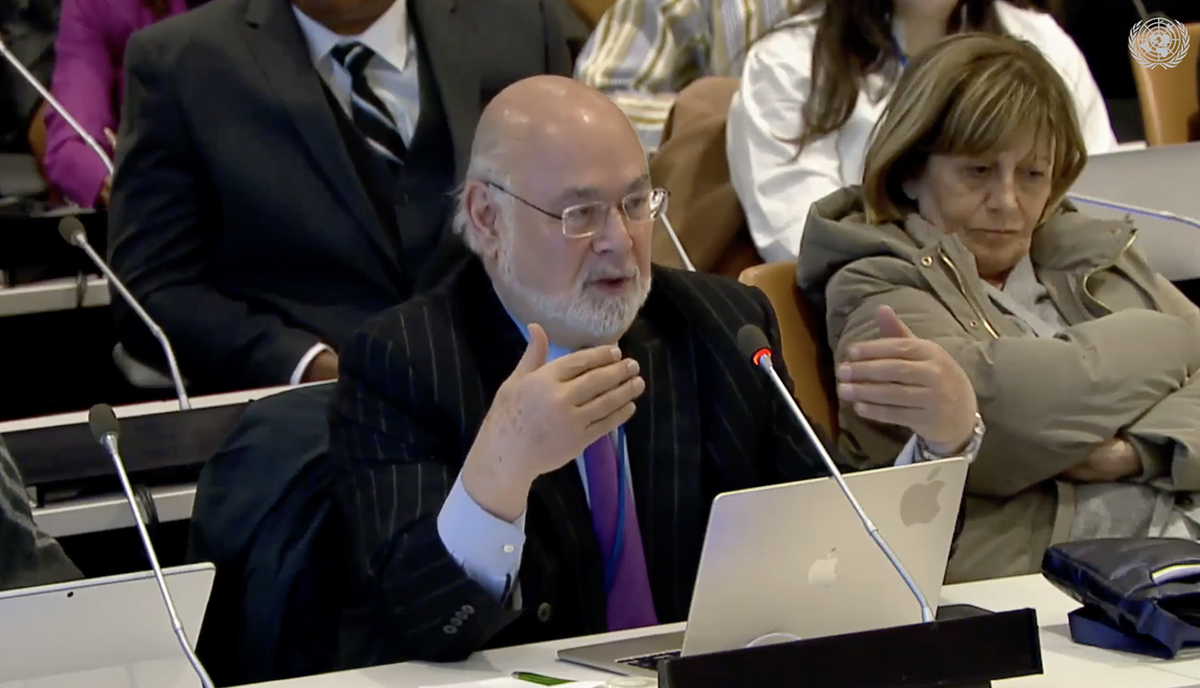Reposted from the Hill Times
VATICAN CITY—A new milestone in the moral rejection of nuclear weapons was reached at the Vatican last week when Pope Francis “firmly condemned” “their very possession.”
The strong language the Pope used in speaking out against the “mentality of fear” and “false sense of security” that drives the new nuclear arms race captured the attention of scores of diplomats and journalists attending a special Holy See conference on nuclear disarmament where he spoke.
There can no longer be any doubt about the Catholic Church’s rejection of nuclear weapons. The speech marked a turn-around in papal teaching on nuclear weapons and may, over time, have profound consequences on the nuclear policies of European countries and the United States and Canada, where Catholic populations are strong.
At the 1982 Second United Nations Special Session on Disarmament during the height of the Cold War, Pope John Paul II gave a limited moral acceptance of the military doctrine of nuclear deterrence, as long as the deterrence policy was not made permanent. The U.S. government seized that loophole to claim that its possession of nuclear weapons was not immoral, thus relieving the consciences of many Catholics in the military and scientific communities.
From the dawn of the nuclear age, the Catholic Church opposed the “use” of nuclear weapons, but was quiet or ambivalent on “possession.” But possession keeps driving the modernization programs of all the nuclear weapons states, particularly the U.S., now on track to spend $1.2-trillion over the next three decades on improving its nuclear arsenals. The Holy See, observing how nuclear deterrence has indeed become permanent, dug in its heels to remove any moral legitimacy, a reversal, which in the arcane world of Vatican diplomacy is not easy to do.
The adoption at the UN July 7 of the Treaty on the Prohibition of Nuclear Weapons gave Pope Francis the opening he needed. The treaty, which stigmatized such weapons and put them completely outside international humanitarian law, was a direct attack on the possession of nuclear weapons. The U.S., along with its nuclear partners, the U.K. and France, and its client NATO states, are fighting to destroy the prohibition treaty before it enters into force (with 50 ratifications).
But the Holy See was one of the first to sign and ratify the treaty, and its sponsor, the International Campaign to Abolish Nuclear Weapons (ICAN), which has just won the Nobel Peace Prize, was honoured at the Holy See conference.
The Pope, appearing in the fresco-laden Clementine Chapel, lauded the “humanitarian initiative sponsored by a significant alliance between civil society, states, international organizations, churches, academics, and groups of experts.” In other words, the Pope appeared to be saying, the world is comingtogether to fight against the pessimism of prospective annihilation. As if to prove his point and spur them on, Francis
shook the hand of every last one of the 350 delegates.
The program even featured a “debate” over the prohibition treaty between Rose Gottemoeller, a top U.S. official who is deputy secretary-general of NATO, and the ambassadors of Mexico and Austria, leading exponents of the treaty. Gottemoeller side-stepped the issues of legality and morality, arguing that the treaty would undermine years of work carried out by the nearly-50-year-old Nuclear Non-Proliferation Treaty. Her debating opponents dismissed such posturing and said the humanitarian stigmatization represented by the treaty was the only sane way forward.
The program had a plethora of high level speeches, but the intrepid Francis, condemning possession of nuclear weapons, stood out. “International relations cannot be held captive to military force, mutual intimidation, and the parading of stockpiles of arms,” he said. He didn’t mention the U.S. and North Korea by name, but his reference was clear.
His words will make the chanceries of many countries, including Canada, uncomfortable—at least for a few days or weeks. Then perhaps Francis’s words will fade away in the 24/7 news cycles. The Vatican itself, torn by liberal-conservative polarization on most issues, is not likely to promote the new stand. The American bishops, who had stand-ins guarding their interests at the conference, will most likely attempt to bury the Pope’s words.
Will the Canadian government, which follows the U.S. lead and opposes the prohibition treaty, suddenly sign it because of Francis’s moral strictures? The Canadian Catholic bishops are now on the spot. In the recent past, they were social justice leaders, but lately not so much. If Prime Minister Justin Trudeau doesn’t hear from them now, Trudeau will feel confirmed in his opposition to the treaty, Pope Francis notwithstanding.
Francis’s new challenge opens up a large discussion of the influence of ethics and morality on public policy. There don’t appear to be any short cuts to human security today. That is why Pope Francis opened a new Vatican department,Integral Human Development, headed by the estimable Cardinal Peter Turkson from Ghana, to join the issues of poverty, migrants, the environment, and arms control into an integrated effort to build human security.
The Pope seems to realize the prospects for a world free from nuclear weapons and integrated development seem remote. That is why he sought, in my view, to shake up the system with his historic condemnation of even the possession of nuclear weapons.
Former Independent Senator Douglas Roche, an adviser to the Holy See at the United Nations, was an invited delegate to the special Vatican conference on nuclear disarmament last week.
Jonathan Granoff is the President of the Global Security Institute, a representative to United Nations of the World Summits of Nobel Peace Laureates, a former Adjunct Professor of International Law at Widener University School of Law, and Senior Advisor to the Committee on National Security American Bar Association International Law Section.








